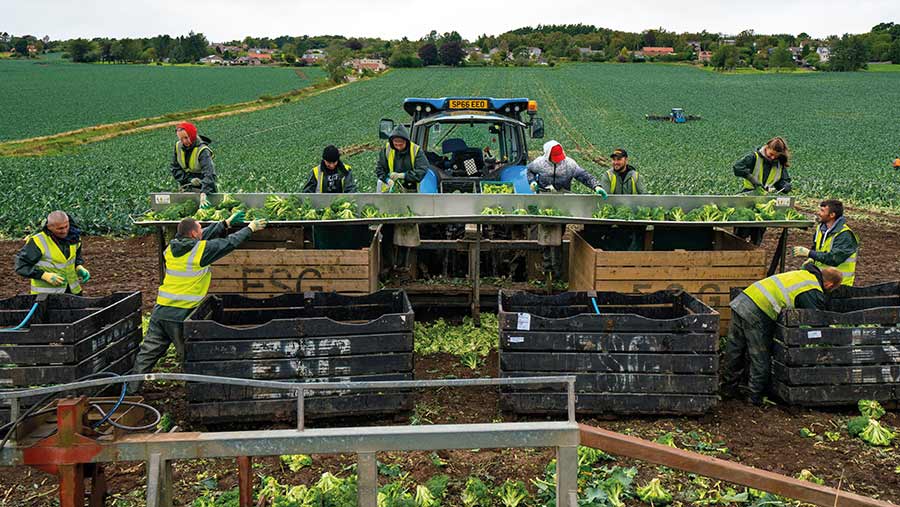Home Office has final say on new Scots migrant labour plan
 © Iain Masterton/Alamy Stock Photo
© Iain Masterton/Alamy Stock Photo Plans for a bespoke rural visa pilot scheme, to help secure sufficient migrant labour for farming and other businesses, have been presented by the Scottish parliament to Westminster.
If accepted – and the Home Office in London will have the final say – the new scheme could see additional workers arriving in Scotland from as soon as next year.
See also: Scots’ previous plans for tackling labour shortage
Called the Scottish Rural Community Immigration Pilot, the plan is based closely on a “place-based” system used in Canada, which seeks to link migrant workers to areas of genuine employment opportunity and need.
“The proposal sets out exactly how a bespoke immigration solution could be delivered at a local level in Scotland, now,” said rural affairs secretary Mairi Gougeon.
“These are interventions that can work in Scotland, just as they have worked in Canada.”
How it works
Under the plans, participating employer-sponsors within designated geographic areas, referred to as Community Pilot Areas, would advertise vacancies, using bespoke criteria.
Employers and communities would then assess prospective candidates, before recommending those chosen to the Home Office for final approval and security checks.
If approved, community partners – including employers and local service providers – would offer a package of integrated settlement support for newcomers.
Participating employers, in collaboration with Scottish and UK governments, would then ensure that the terms and conditions of the scheme continued to be met.
It is envisaged that, after four years, restrictions would lift and migrants would be free to work anywhere in the UK, outside of their Community Pilot Area.
According to the proposal, “the desired and intended outcome of the pilot is that a majority of migrants would have established deeper roots in the community, and would continue to stay beyond the four years”.
Response
Commenting on the plans, NFU Scotland president Martin Kennedy said that, given the chronic labour shortages that continue to affect Scottish farms and food production, “any steps to address this long-running labour crisis are welcome”.
“This proposal presents a community driven, employer-based migration route, targeting areas of remote, rural Scotland where population has been falling,” he said.
Mr Kennedy also called on the UK government to improve and expand the current seasonal workers scheme, and to make significant changes to the Shortage Occupation List criteria to alleviate staffing shortages.
Cold water
But the Home Office already seems to be pouring cold water on the plans, pointing out that “UK immigration is a UK government reserved matter and the points-based immigration system works in the interest of the whole of the UK”.
“De-population in Scotland is neither caused nor can be remedied by immigration,” said a spokesman.
“As the independent Migration Advisory Committee has noted, rural areas may struggle to retain migrants for the same reasons as with the local population. Investment in jobs and infrastructure – which devolved administrations have powers to address – must be considered.”
The Home Office also indicated it was against different treatments in different parts of the UK, saying its migration system was designed to serve the whole of the UK, “including not creating an economic migration border between Scotland and the rest of the UK”.
